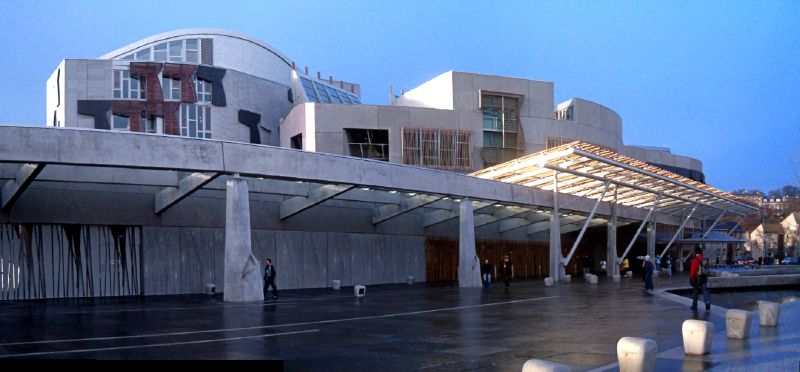Religion, Referendum and Resentment: Labour’s new place in the Scottish Political Wilderness
Against the backdrop of the shifting sands of Scottish politics, Professor Graham Walker analyses the recent decline of the Labour party in Scotland and highlights that the reports of the party's demise are far from exaggerated but potentially true.

The results of the recent Scottish Parliamentary election have confirmed the spectacular demise of the Labour Party. The consequences of this are far-reaching: Labour will almost certainly not be able to form a government on its own again at Westminster unless it wins back Scotland.
The SNP now owes much, like Labour before it, to the working class heartlands of West-Central Scotland. Within this region there is a large Catholic vote that went loyally to Labour for generations. The Labour Party in Scotland grew out of the crusading struggles of the old Independent Labour Party (ILP) and became the country’s dominant political force in the second half of the 20th century, appealing across the main religious boundary between Protestants and Catholics and managing the religious underpinnings of Scottish culture and society and the Irish influences that often gave them such vigour.
Moreover, by successfully promoting the politics of class interest, Labour made a crucial contribution to Scotland’s settled place within the UK and the Union. The SNP recently dismantled this paradigm, and it has taken great care to shape its appeal to aspects of the Catholic community’s identity, namely assurances over the preservation of denominational schools, and celebration of Irish roots and cultural heritage.
Another interpretation of these developments is that Scotland is in the grip of identity politics and has become ‘Ulsterised’. The main political dividing line is now the question of the Union or independence, and with Catholics lined up in such numbers behind the SNP and indeed the pro-independence position, pro-Union support has become by default much more Protestant. In the 2014 Independence Referendum, 57% of Catholics voted ‘Yes’ compared to only 41% of those identifying as Protestant. Indeed, such is the Labour Party’s current lack of credibility that many pro-Union voters, across class boundaries, plumped on 5 May for the Conservatives and produced a political comeback that seemed highly unlikely until the 2014 Referendum.
Since then, Ruth Davidson (Scottish Conservative leader) has played both the ‘Scottish card’ in distancing her party from London and embracing the evolution of the devolution arrangements her party once steadfastly opposed; and simultaneously projecting to the still predominantly ‘No’ electorate the image of her party as dependable on the matter of defending the Union in a way Labour no longer was. When she took over as Scottish Labour leader in late 2014, Kezia Dugdale caused confusion by announcing that Labour welcomed supporters of independence.
Scotland is not Northern Ireland and religious affiliations and identities do not map so neatly as in Northern Ireland on to political choices. Nevertheless, the days when Labour could effectively persuade Orange and Green factions in Scotland to lay aside their tribal loyalties and vote together on health, housing, jobs and better wages are over.
I argue in a forthcoming book – The Labour Party in Scotland: Religion, the Union, and the Irish Dimension (Palgrave-MacMillan, 2016) – that in the new political context of devolution from the end of the 20th century, issues such as religious sectarianism became matters of great public concern, and that developments around the issue – high-profile government summits, debates over the historical and contemporary nature of the problem, new legislation in the Scottish Parliament at Holyrood – all fed the growth of an identity politics within which class concerns and loyalties were challenged as never before for primacy.
In short, Catholics began to move away from seeing the Labour Party as their protector in a society some felt was hostile to them. Working class Protestants in many cases started to resent the way they were side-lined as both Labour and the SNP targeted the Catholic vote and appeared to use the sectarianism issue in their power struggle for political mastery in the new Scotland. Such Protestants also resented being given the main share of the blame for continuing sectarian divisions when, some argued, segregated schooling was at least an equally pertinent factor.
Labour is now paying the price of failing, when it was in power for so long after 1997, to cater for the distinctiveness of the different parts of the UK while also –crucially – taking care to sustain an overall sense of belonging and allegiance. In Scotland, rather than stressing its achievement in having built a secular unionism and sustained a common social citizenship for so long that transcended sectarian and ethnic divides, Labour allowed politics to shift to the ground of identity politics so congenial to the Nationalists. The sectarianism debate in Scotland that took off in the new context of devolution – with all its Northern Irish overtones and connections – was an important contributory factor in the Labour Party’s loss of political authority in Scotland and its eclipse by the SNP.
The featured image in this article has been used thanks to a Creative Commons licence.
1 Comment
This isn’t accurate in many respects. the sectarian debate in scotland is centred on celtic and rangers and played almost no part in the political shift away from labour. labour’s collapse was entirely due to its unionist stance in the scottish independence referendum – seeing them stand shoulder to shoulder with the conservatives was simply too much for the electorate, who lost trust, felt betrayed, and saw that the party were out of touch with the zeitgeist. some union jack – waving individuals rushed george square when the result was announced but this was a minor scuffle and was the only sign of quasi-sectarianism in the whole – very healthy – campaign.




